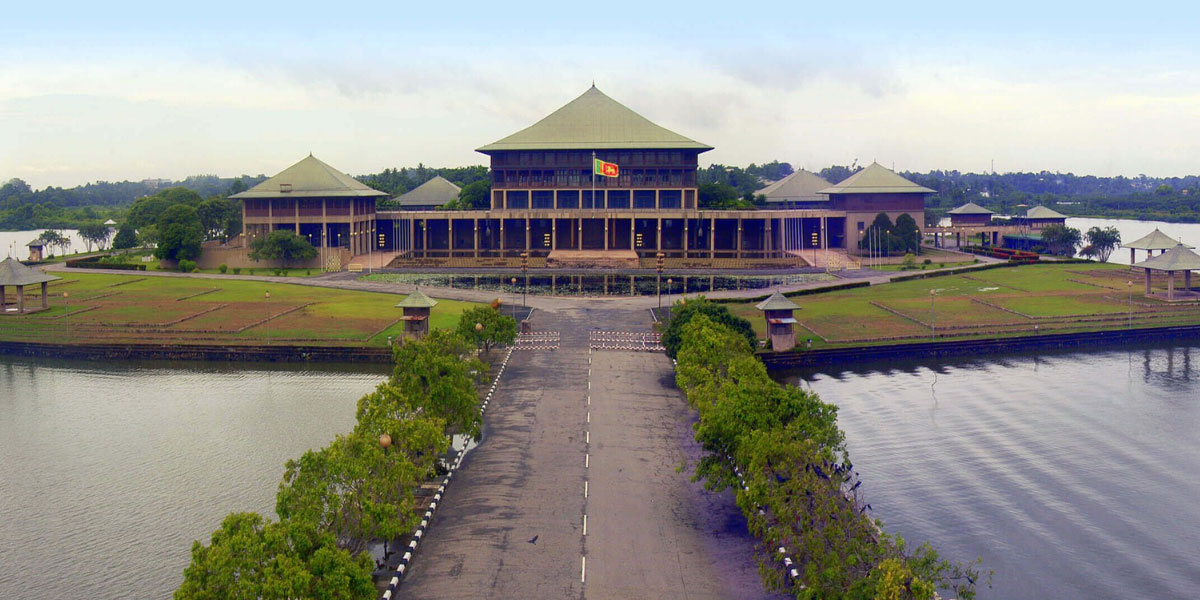On 17 November 2020, Mr. Mangala Samaraweera, the Finance Minister of Sri Lanka presented Budget for 2021. Finance Minister stated that tax law will be amended where it will be mandatory for all Companies to file their taxes only on an “E-Filing” system with effect from 01 April 2021. The proposal provides a 50% tax concession for the years 2021/2022 for local companies that list on the Colombo Stock Exchange before 31 December 2021, with a 14% corporate tax rate for the subsequent 3 years.
The Budget provides a tax holiday of 7 years for all renewable energy projects and also reduces tax on dividends of multi-national companies by 25% in 2021 and 50% in 2023 subject to the condition that the company increases their exports by 30% and 50% in the respective years.
The summary of tax proposals of the budget are following:
Removal of Withholding Tax (WHT)
Following payments are exempt from Withholding tax with effect from January 01, 2020:
- Interest, specified fees, dividend, charge, natural resource payment, rent, royalty, premium or retirement payments made to residents.
- Employment income.
- Partners’ share of a Partnership profit. The taxable income of the partnership excluding Rs. 1 million per annum is subjected to Partnership Tax at the rate of 6%.
Exemptions from income tax
- Profits and income earned by any person from farming including agriculture, livestock and fish farming, with effect from April 1, 2019.
- Profits and income earned from providing Information Technology and enabling services, with effect from January 1, 2020. The enabling services will be prescribed by regulations by the Minister in charge of the subject of Finance.
- Profits and income earned from services rendered to persons outside Sri Lanka, including the income earned from foreign sources if the payments for such services or income from such sources are received in foreign currency, through a bank, with effect from January 1, 2020.
- Interest income earned on Non-Resident Foreign Currency (NRFC) and Resident Foreign Currency (RFC) accounts, with effect from January 1, 2020.
- Interest paid on loans obtained from any person outside Sri Lanka, with effect from April 1, 2018.
- Any income earned by any non-resident person on any Sovereign Bond denominated in foreign or local currency, with effect from April 1, 2018.
- Interest or discount paid or allowed to any person on Sovereign Bonds denominated in foreign currency, with effect from April 1, 2018.
- Funds received by any Public Corporation out of the funds voted by Parliament from the Consolidated Fund or out of any loan arranged through the Government, with effect from April 1, 2018.
- Dividends paid by a resident company to any non-resident person, with effect from January 1, 2020.
- Dividends distributed by Commercial hub Enterprises, with effect from January 1, 2020.
- Dividends from and gains on the realization of shares in a non-resident company where derived by any person with respect to a substantial participation in the non-resident company with effect from January 1, 2020
- Amounts derived by any non-resident person from laboratory services or standards certification services, with effect from January 1, 2020.
- Amounts received by any religious institution by way of grants and donations, with effect from January 1, 2020.
- All aircraft related payments, software licenses and other overseas payments made by SriLankan Airlines with effect from April 1, 2018.
- Exemption or variation of the applicability of the provisions of the Inland Revenue Act, No. 24 of 2017, in respect of projects approved under the Strategic Development Projects Act, No. 14 of 2008
Qualifying Payments
- Personal relief for residents or non-residents but citizens for each year of assessment is Rs. 3,000,000/- with effect from January 1, 2020.
- Payments made to Consolidated Fund by any Public Corporation is deductible in calculating income tax of such Corporation, with effect from April 1, 2019.
- Following payments subject to maximum of Rs.100,000/- per month or Rs. 1.2 million per annum is deductible, with effect from January 1, 2020 in calculating the Personal Income Tax: a) Health expenditure including contributions to Medical Insurance; b) Educational expenditure incurred locally; c) Payment of interest on housing loans; d) Contribution to an approved pension scheme; e) Expenditure incurred for the purchase of equity or security.
Income Tax Rate Changes
- Revision of Personal Income tax rates on taxable income with effect from January 1, 2020 as follows: First Rs. 3 Million – 6%; Next Rs. 3 Mn – 12%; Balance – 18%.
- Income tax rate applicable on the terminal benefits is revised with effect from January 1, 2020, as follows: First Rs. 10 Million – Exempt; Next Rs. 10 Milion – 6%; Balance – 12%.
- Payments to non-residents where such payments has a source in Sri Lanka is treated as final withholding payments, with effect from January 01, 2020 and subjected to tax as follows: Interest payments – 5%; Any other payment – 14%.
- Corporate Income Tax Rate is revised, with effect from January 1, 2020, as follows:
| Exports, Tourism, Education, Medicare, Construction, and Agro processing | 14% |
| Manufacturing | 18% |
| Trading, Banking, Finance, Insurance, etc. (Standard Rate) | 24% |
| Liquor, Tobacco, Betting and Gaming | 40% |
Advance Income Tax
- Advanced Personal Income Tax can be deducted from regular fixed income (remuneration, interest etc.) of individuals, subject to the written consent of such individual with effect from April 1, 2020.
- Advanced Income tax can be collected at the source, subject to the written consent of the tax payer with effect from April 1, 2020.
Tax relief measures to facilitate post Covid-19 economic recoveries
- Consideration of the income generated from the supply of Health Protective Equipment and similar products by BOI companies on the request of Ministry of Health and Indigenous Medical Services, Department of Health Services, Tri Forces and Sri Lanka Police as “Deemed Exports” and to consider the said quantities for the calculation of 80% export requirement for the tax purposes, to become eligible for reduced tax rates.
- Waiver of Income tax in arrears, payable by the SMEs as defined in the Inland Revenue Act, No. 24 of 2017, on the assessments issued up to the year of assessment 2018/2019 by the CGIR, where he is satisfied that there is no fraud or willful neglect involved in the disclosure of income or any claim for any deduction or relief.
- The income tax return furnished by the SMEs for the year of assessment 2019/2020 is proposed to be accepted and additional assessment not to be issued for that year on tax payers, who furnish the Income Tax Returns for the year and pay the tax declared in the Return.
- A grace period is proposed to be granted to settle the taxes in arrears/default, as agreed with the Legacy Unit, Default Tax Recovery Unit and the Revenue Administration Management Information System (RAMIS) Unit of the Department of Inland Revenue.
- The payment or/and submission of the returns of any tax administered by the CGIR, which is due for the period from March 1, 2020 to June 30, 2020, proposed to be treated as paid or/and submitted on the due date if such payment/submission is made on or before December 31, 2020.












